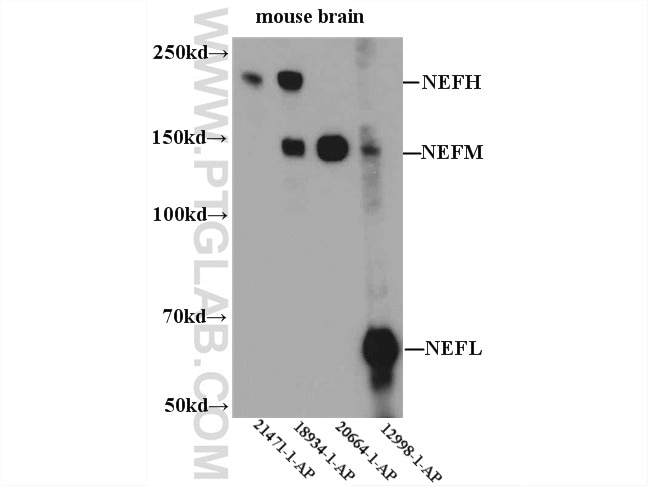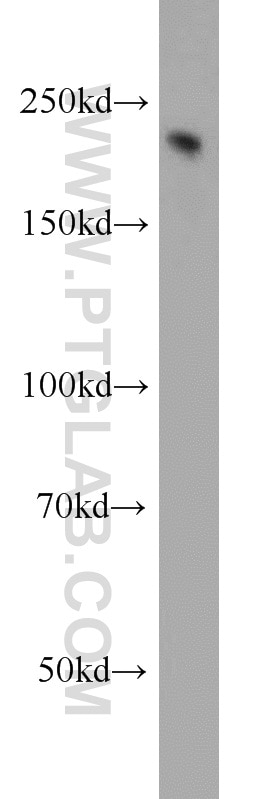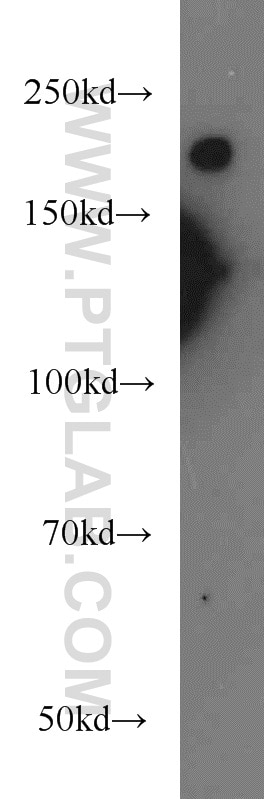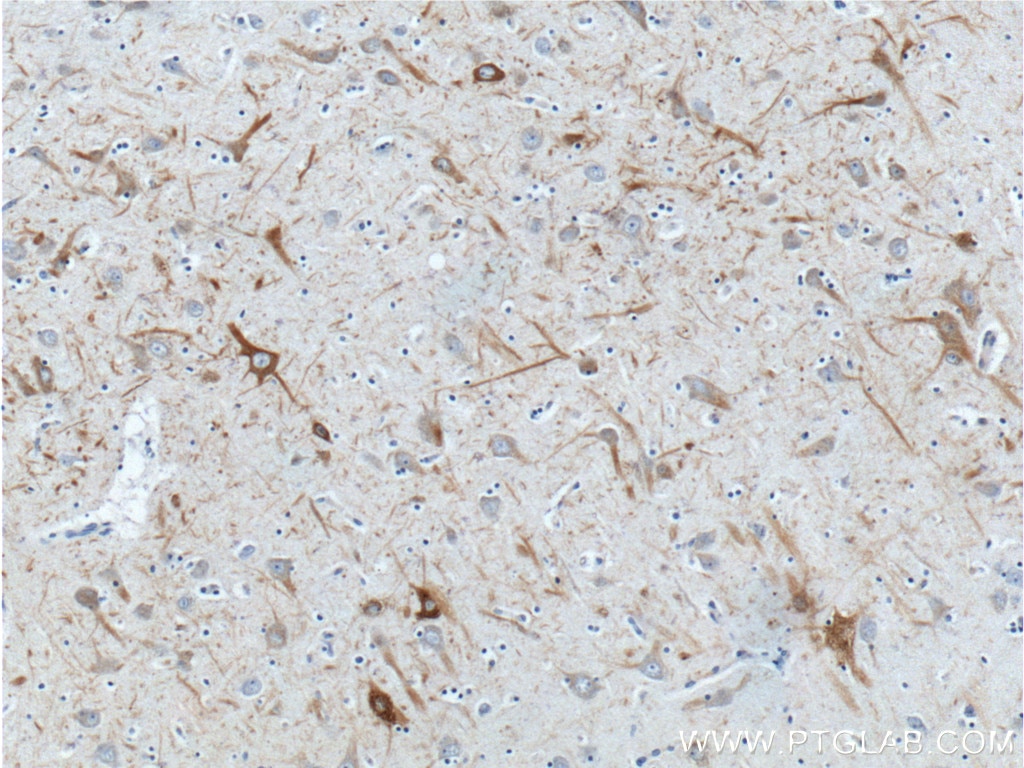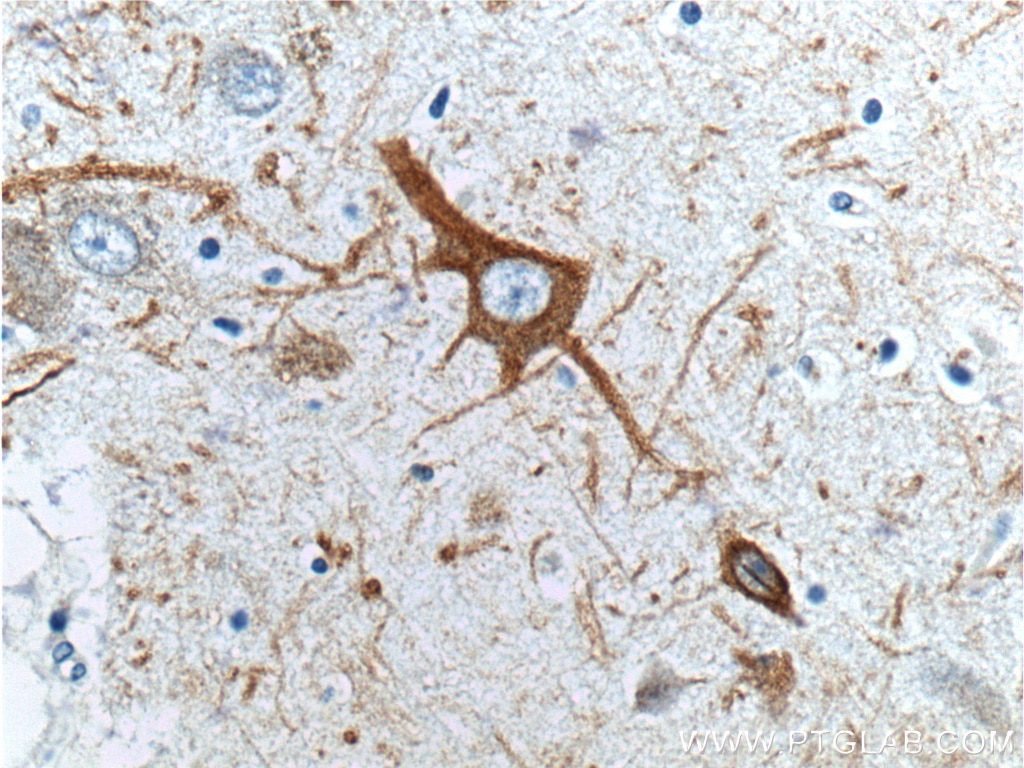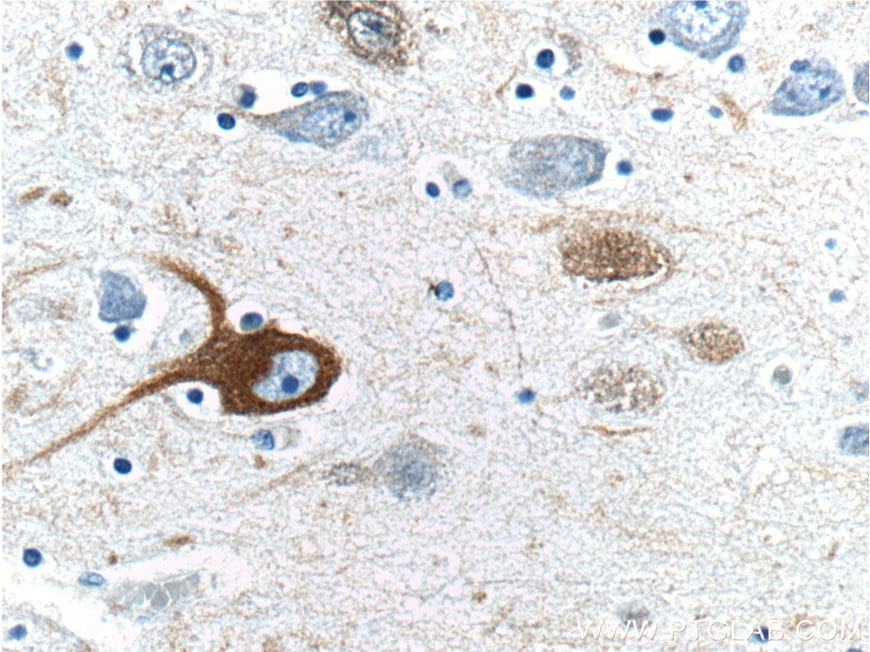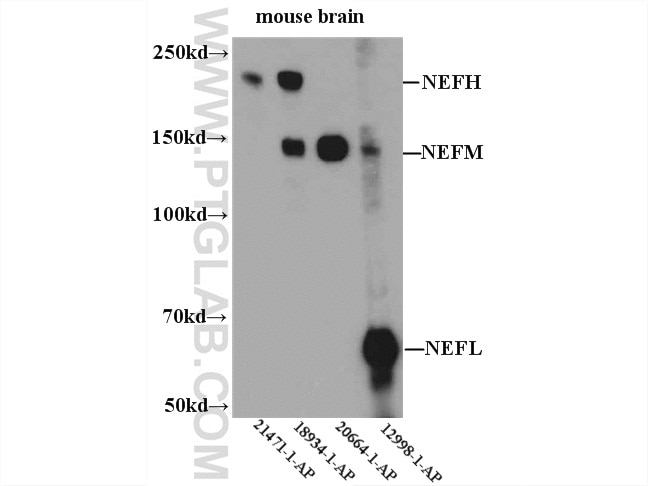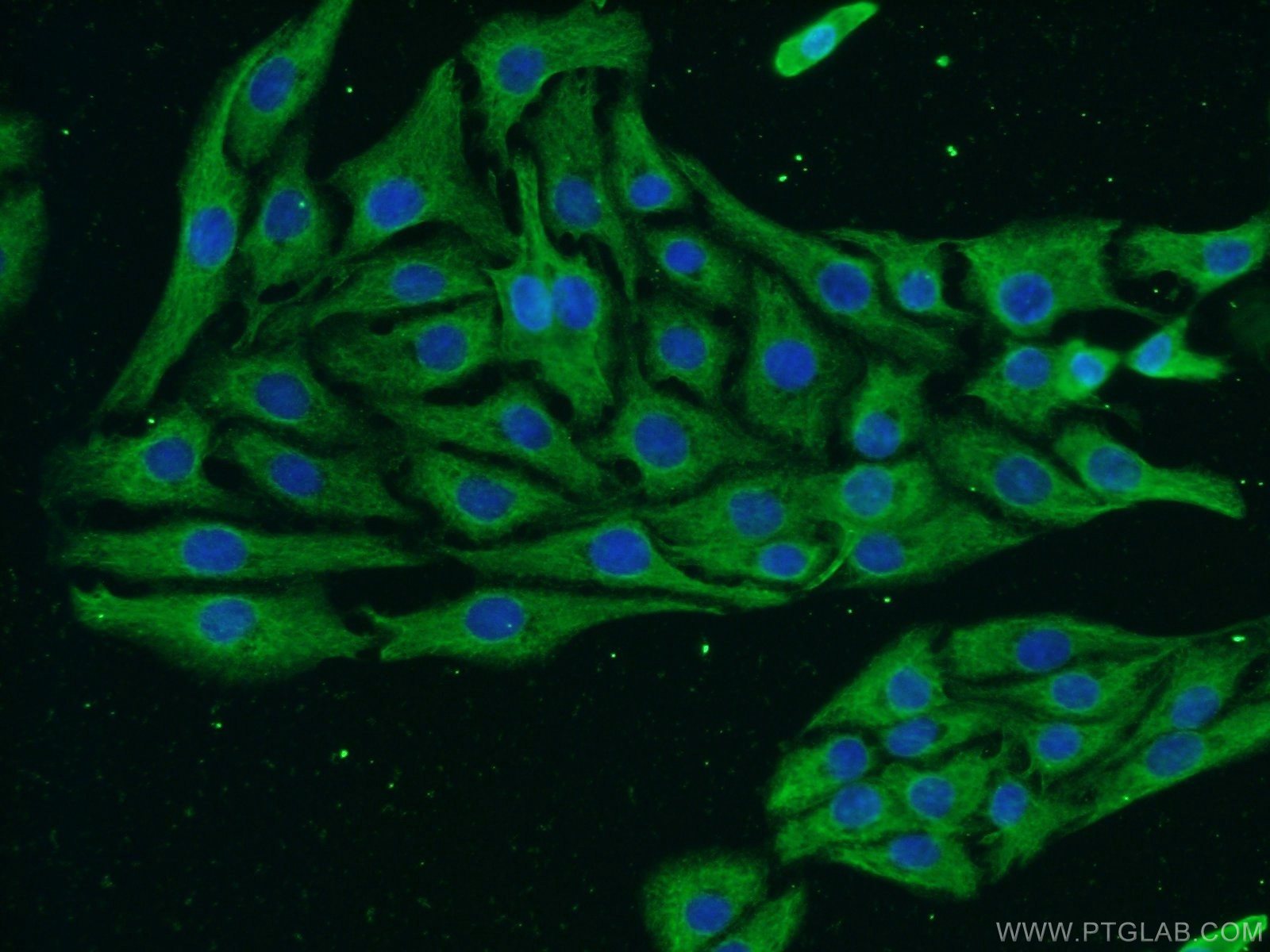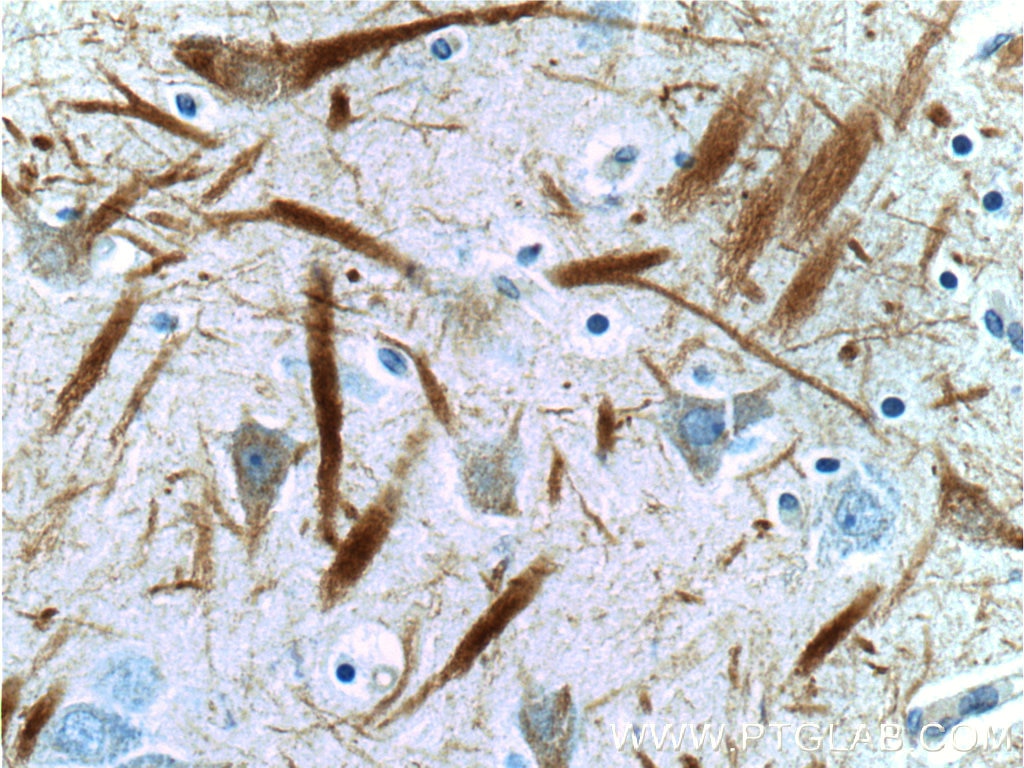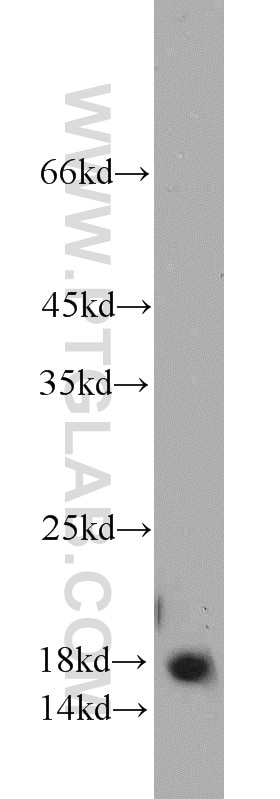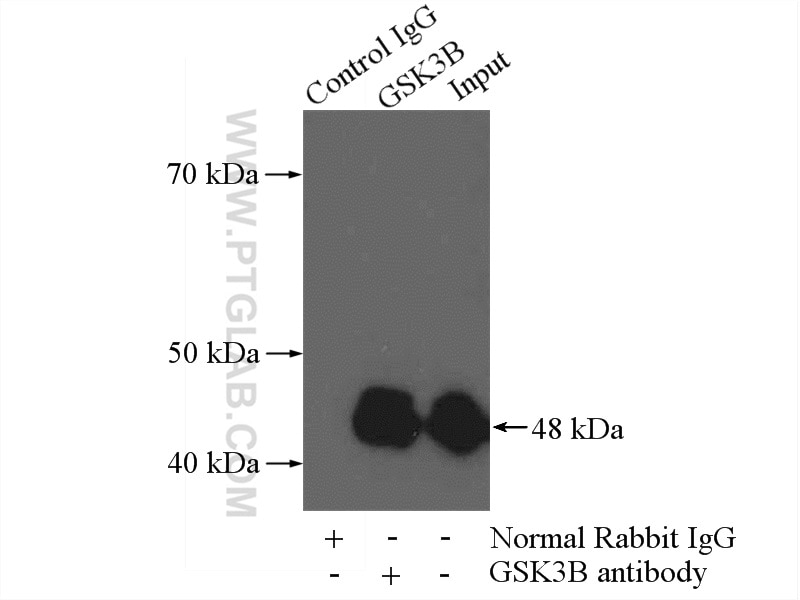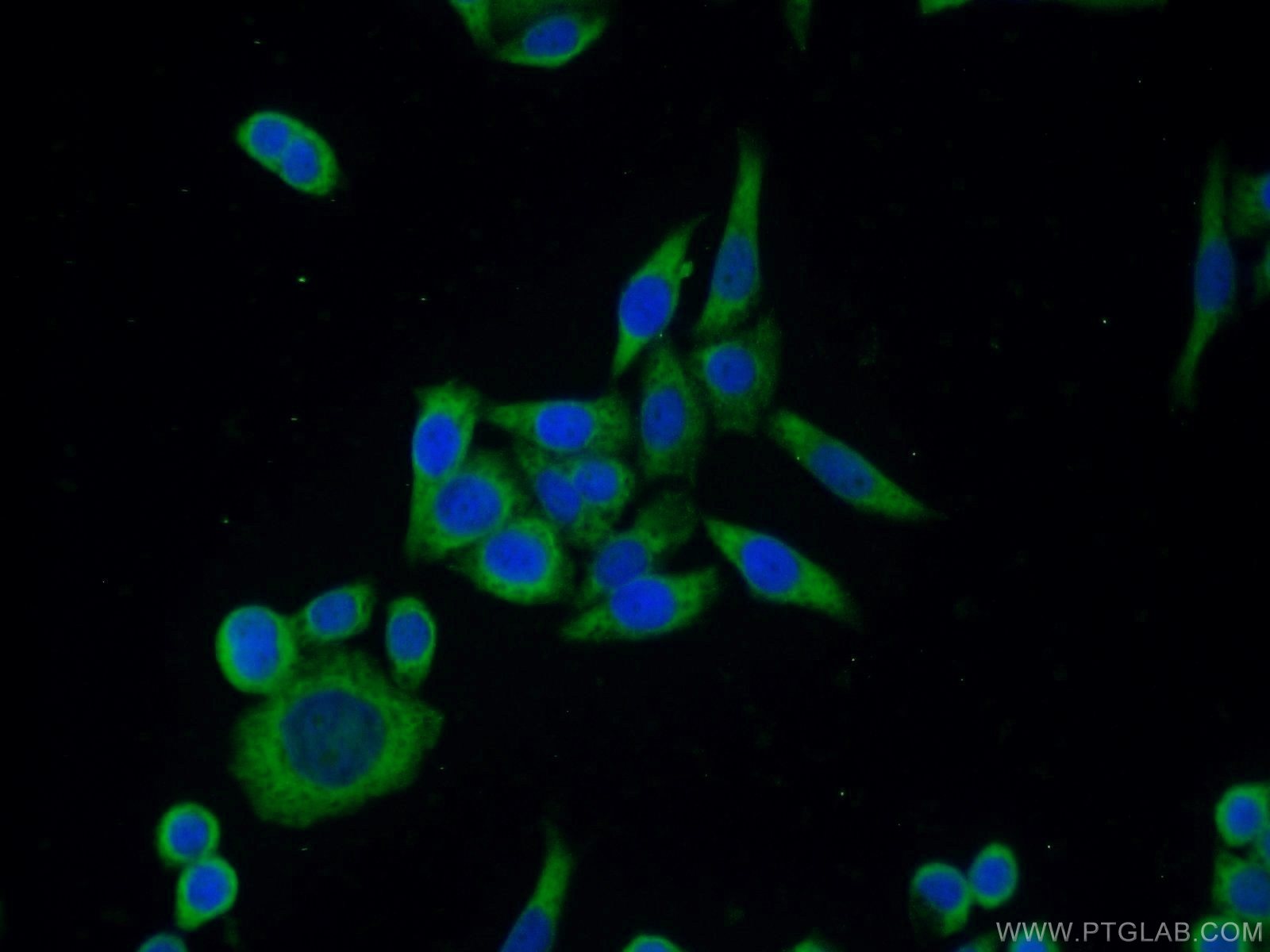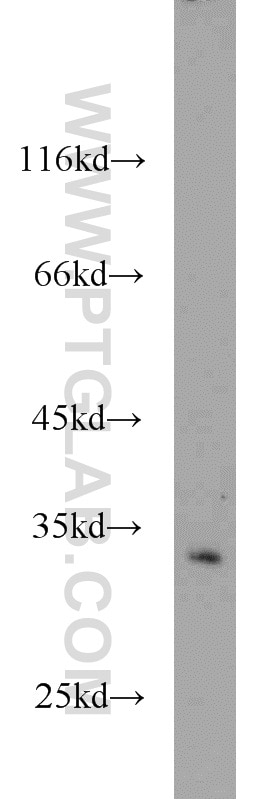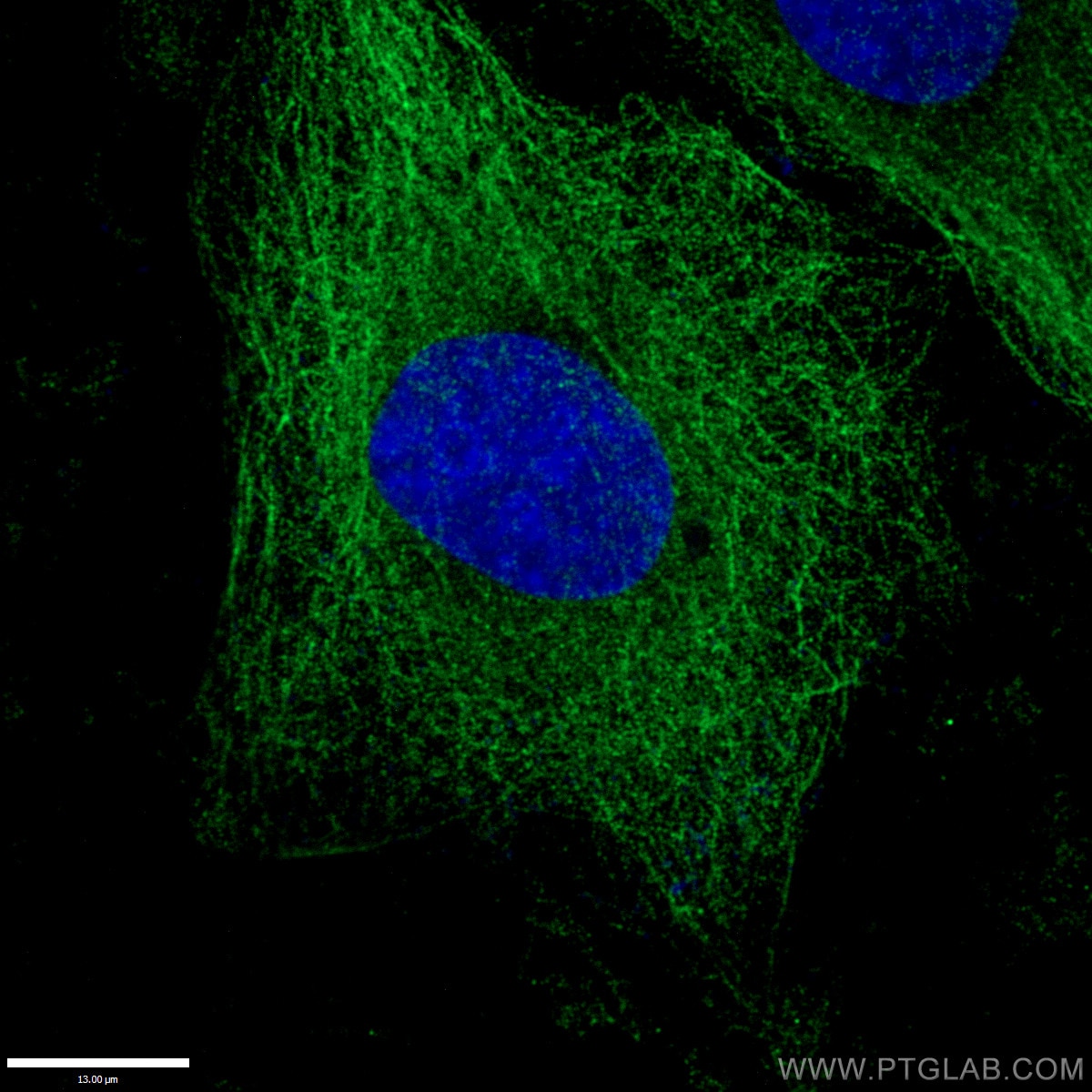Anticorps Polyclonal de lapin anti-NF-H/NF200
NF-H/NF200 Polyclonal Antibody for WB, IHC, ELISA
Hôte / Isotype
Lapin / IgG
Réactivité testée
Humain, rat, souris et plus (1)
Applications
WB, IF, IHC, ELISA
Conjugaison
Non conjugué
N° de cat : 21471-1-AP
Synonymes
Galerie de données de validation
Applications testées
| Résultats positifs en WB | tissu cérébral de souris, |
| Résultats positifs en IHC | tissu cérébral humain, il est suggéré de démasquer l'antigène avec un tampon de TE buffer pH 9.0; (*) À défaut, 'le démasquage de l'antigène peut être 'effectué avec un tampon citrate pH 6,0. |
Dilution recommandée
| Application | Dilution |
|---|---|
| Western Blot (WB) | WB : 1:1000-1:4000 |
| Immunohistochimie (IHC) | IHC : 1:50-1:500 |
| It is recommended that this reagent should be titrated in each testing system to obtain optimal results. | |
| Sample-dependent, check data in validation data gallery | |
Applications publiées
| WB | See 2 publications below |
| IF | See 3 publications below |
Informations sur le produit
21471-1-AP cible NF-H/NF200 dans les applications de WB, IF, IHC, ELISA et montre une réactivité avec des échantillons Humain, rat, souris
| Réactivité | Humain, rat, souris |
| Réactivité citée | rat, singe, souris |
| Hôte / Isotype | Lapin / IgG |
| Clonalité | Polyclonal |
| Type | Anticorps |
| Immunogène | NF-H/NF200 Protéine recombinante Ag15249 |
| Nom complet | neurofilament, heavy polypeptide |
| Masse moléculaire calculée | 1026 aa, 112 kDa |
| Poids moléculaire observé | 200 kDa |
| Numéro d’acquisition GenBank | BC073969 |
| Symbole du gène | NF-H |
| Identification du gène (NCBI) | 4744 |
| Conjugaison | Non conjugué |
| Forme | Liquide |
| Méthode de purification | Purification par affinité contre l'antigène |
| Tampon de stockage | PBS avec azoture de sodium à 0,02 % et glycérol à 50 % pH 7,3 |
| Conditions de stockage | Stocker à -20°C. Stable pendant un an après l'expédition. L'aliquotage n'est pas nécessaire pour le stockage à -20oC Les 20ul contiennent 0,1% de BSA. |
Informations générales
NEFH, also named as KIAA0845 and NFH, Belongs to the intermediate filament family. It has an important function in mature axons that is not subserved by the two smaller NF proteins. Neurofilaments are the 10nm intermediate filaments found specifically in neurons. They are a major component of the cell's cytoskeleton, and provide support for normal axonal radial growth. Neurofilaments usually contain three intermediate filament proteins: L, M, and H which are involved in the maintenance of neuronal caliber. The names given to the three major neurofilament subunits are based upon the apparent molecular weight of the mammalian subunits on SDS-PAGE:NF-L, 65-68kd; NF-M,145-160kd and NF-H, 200-220kd. This antibody recognize NEFH only.
Protocole
| Product Specific Protocols | |
|---|---|
| WB protocol for NF-H/NF200 antibody 21471-1-AP | Download protocol |
| IHC protocol for NF-H/NF200 antibody 21471-1-AP | Download protocol |
| FC protocol for NF-H/NF200 antibody 21471-1-AP | Download protocol |
| Standard Protocols | |
|---|---|
| Click here to view our Standard Protocols |
Publications
| Species | Application | Title |
|---|---|---|
Mater Today Bio Ropivacaine microsphere-loaded electroconductive nerve dressings for long-acting analgesia and functional recovery following diabetic peripheral nerve injury | ||
Sci Total Environ Neurotoxicity and biomarkers of zinc oxide nanoparticles in main functional brain regions and dopaminergic neurons. | ||
iScience Synthetic amyloid-β oligomers drive early pathological progression of Alzheimer's disease in nonhuman primates. | ||
Toxicol Appl Pharmacol Rosmarinic acid exerts a neuroprotective effect on spinal cord injury by suppressing oxidative stress and inflammation via modulating the Nrf2/HO-1 and TLR4/NF-κB pathways. | ||
Plast Reconstr Surg Glob Open A Novel, Sterilized Microvascular Tissue Product Improves Healing in a Murine Pressure Ulcer Model. |
